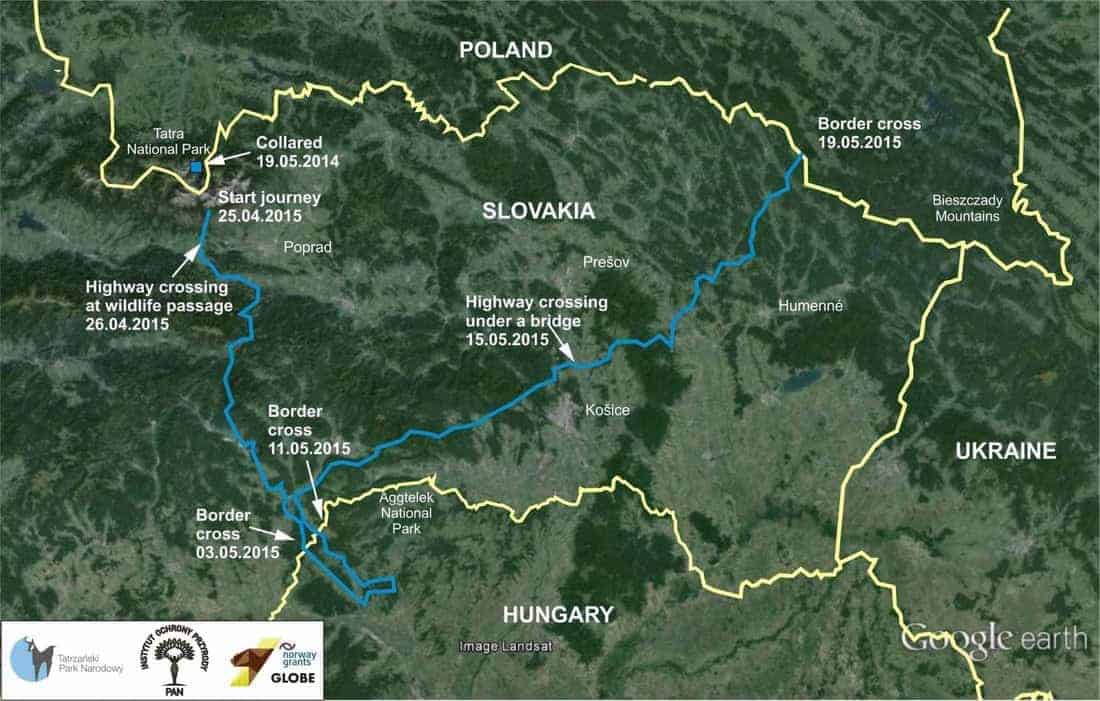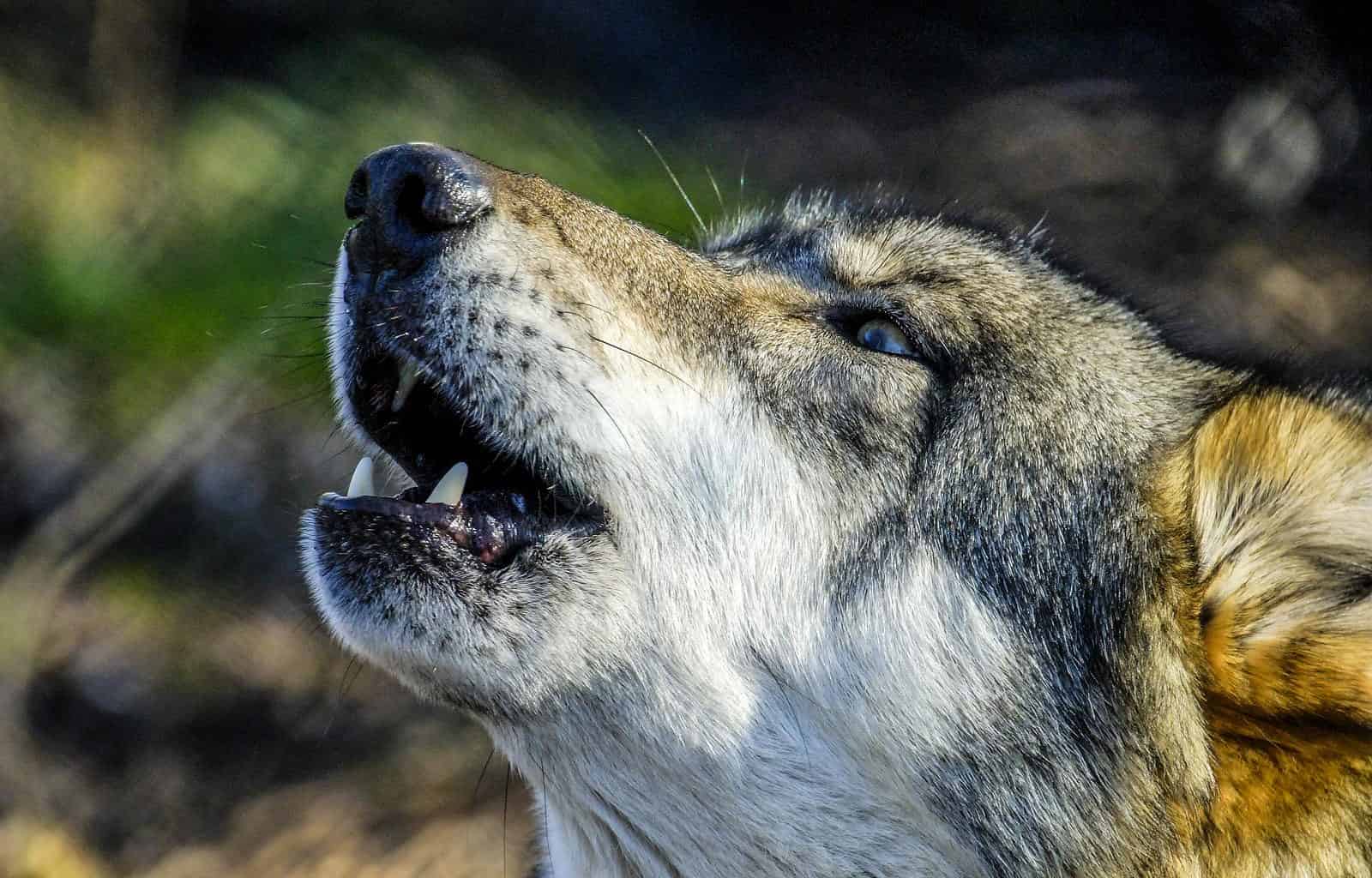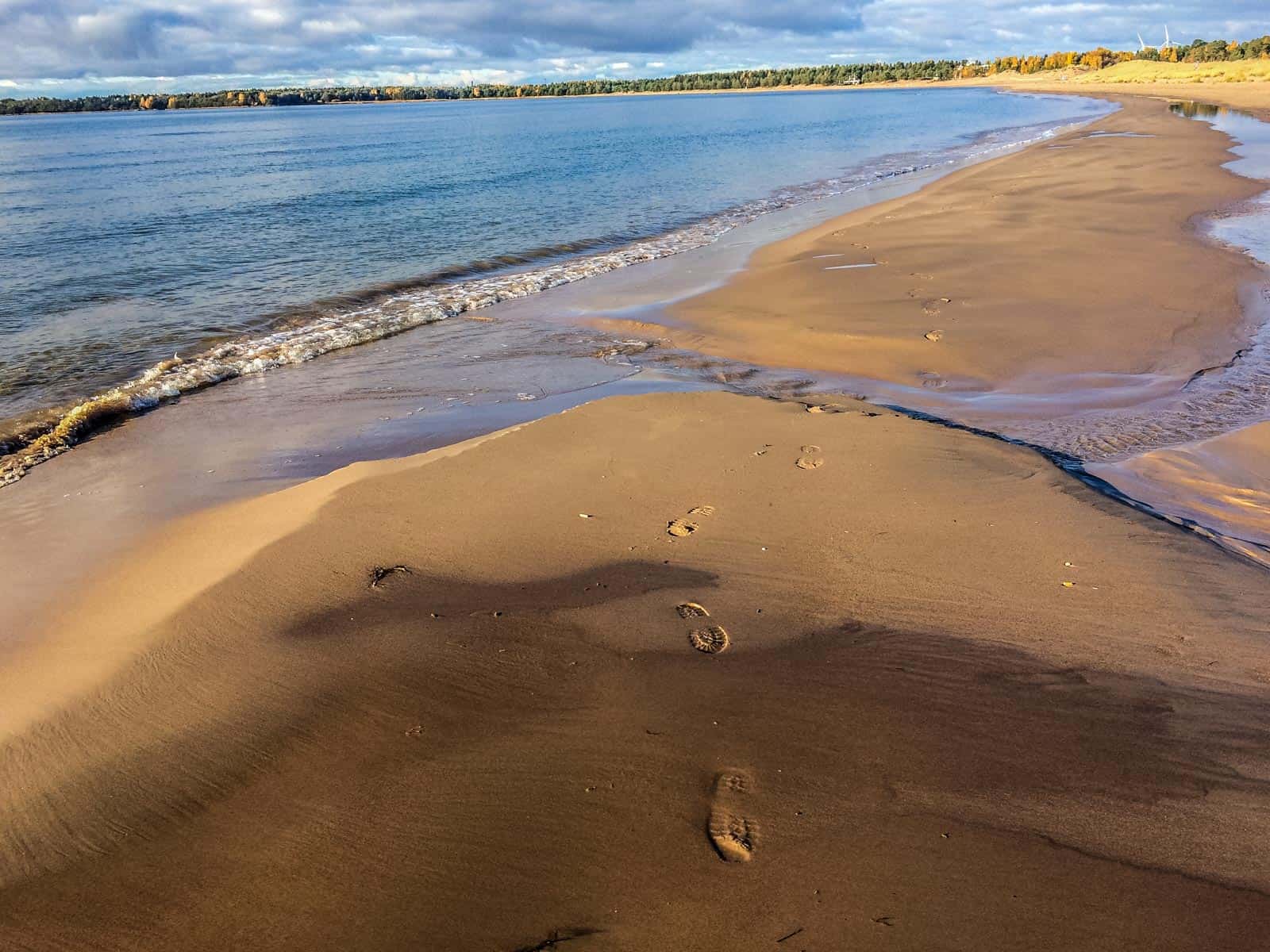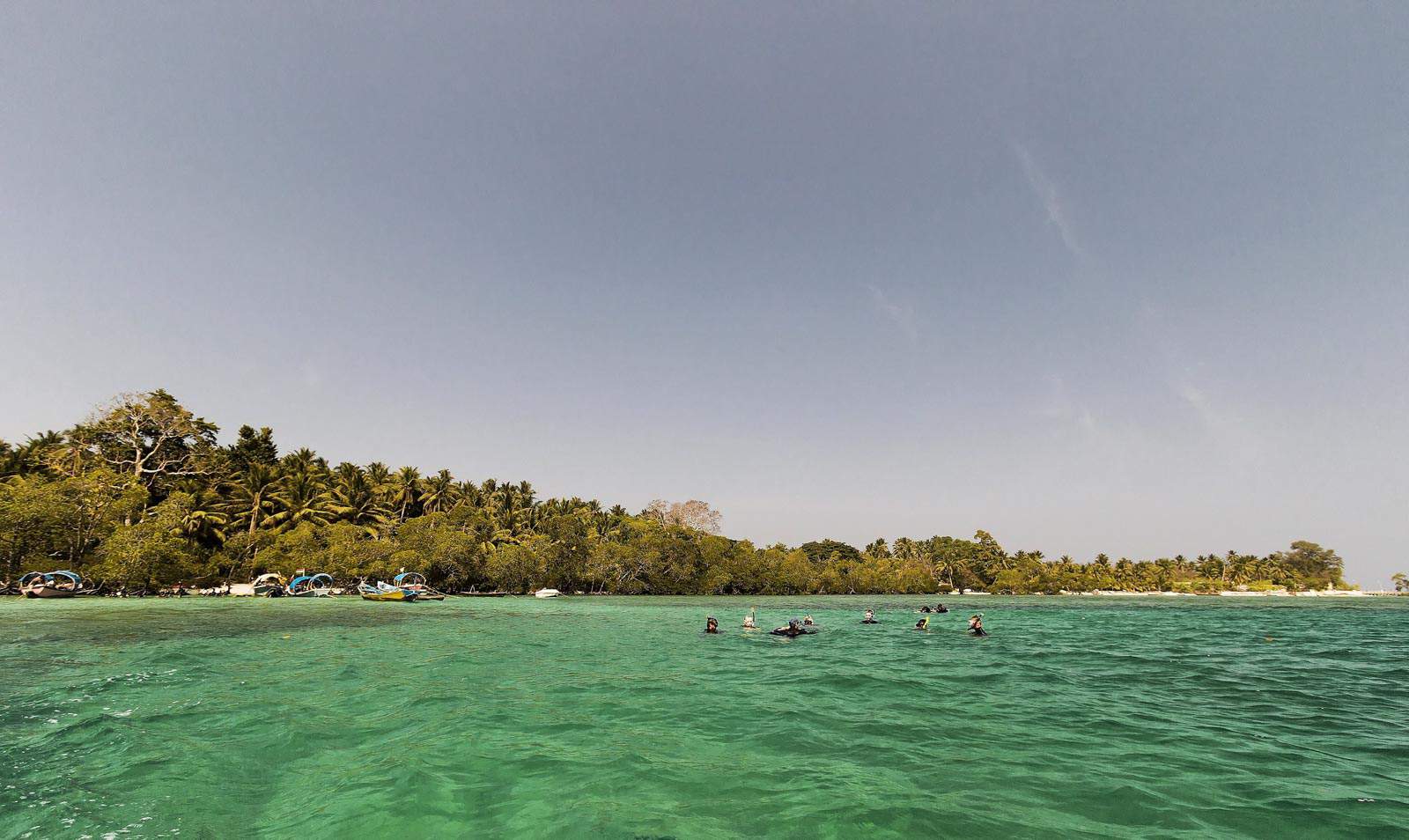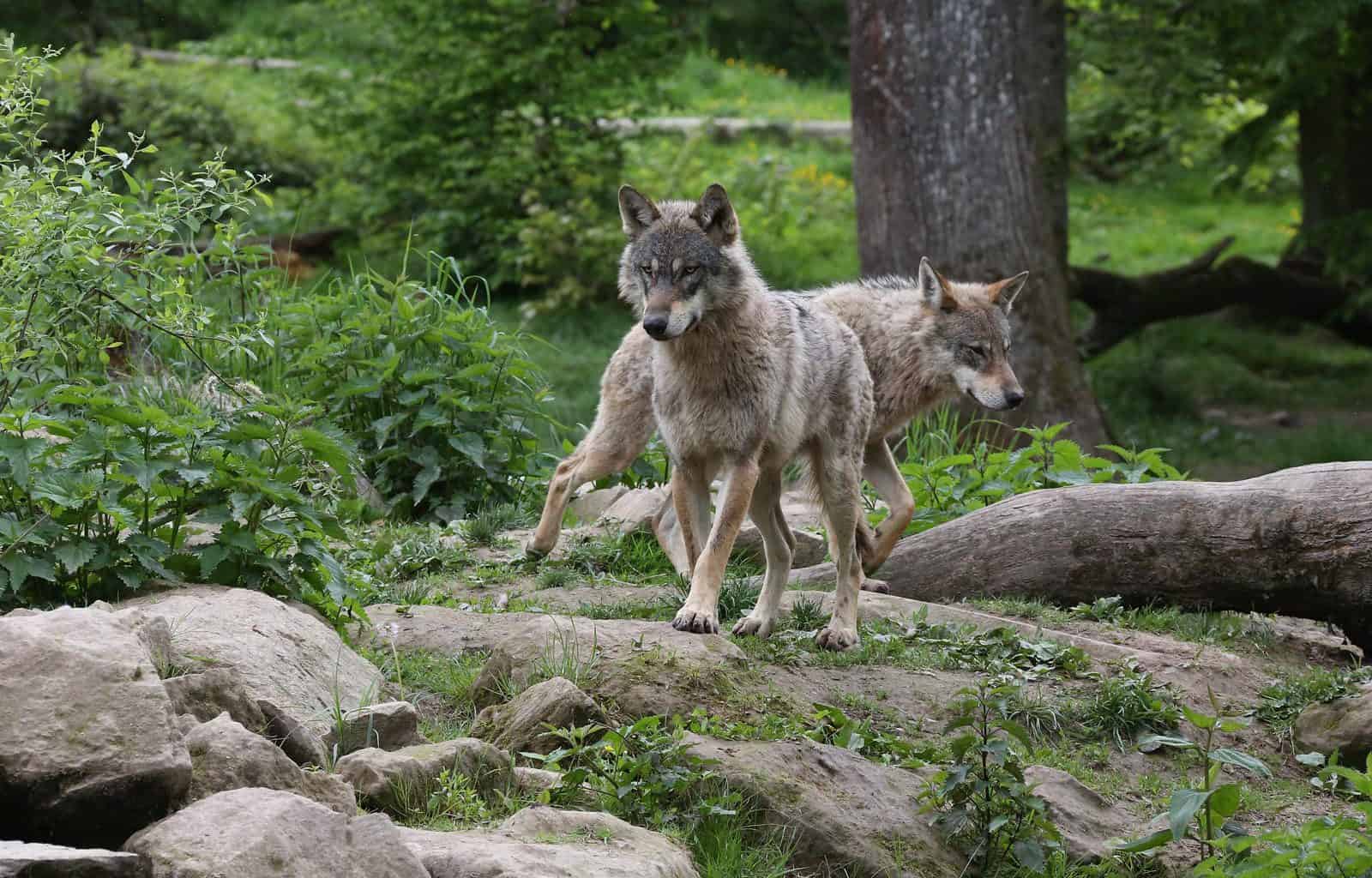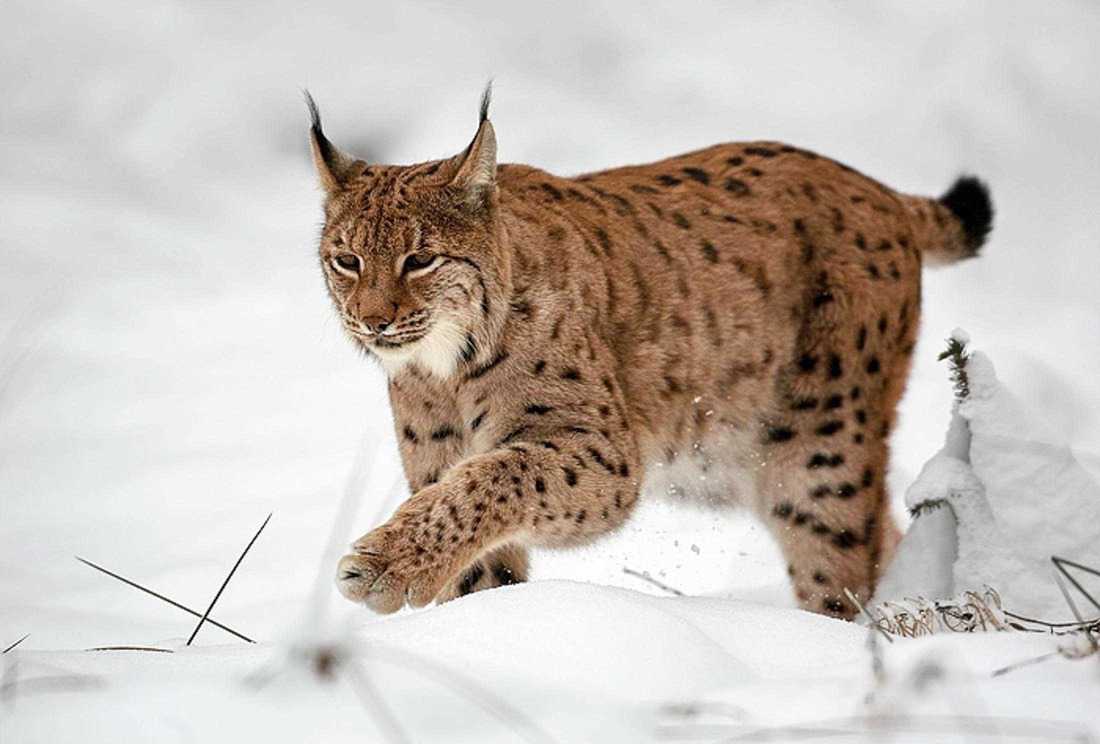The brown bear journey
The brown bear journey continues and Iwo arrives back to Poland! Our friend, Nuria Selva from Poland, has just sent us the most recent information about the incredible journey of the collared brown bear, names Iwo. We publish Nuria’s story without any change and with one addition: Iwo proves to be the perfect European citizen who knows that political boundaries are meaningless!
—
Iwo, the traveler Tatra bear that went south down to Hungary on 3rd may, crossed the Polish-Slovakian border yesterday in the Podkarpackie region. Iwo has travelled 373 km since he started his journey from the Tatra Mountains three and a half weeks ago.
Iwo, the 5-year old bear collared in the Polish Tatras a year ago, started in the end of April a 114-km trip to the south. A week later, on 3rd may, he crossed the Slovakian-Hungarian border. Iwo’s presence in Hungary caused sensation because bears occur only occasionally and he was probably the first bear with a collar. After spending another week in Hungary, Iwo turned back the same way, leaving Hungary and crossing again the border into Slovakia on 11th may. Then, he suddenly changed direction to the northeast and started an amazing trip through Slovakia. Yesterday evening (19.05.2015), after almost 190 km travelled since he left Hungary, Iwo reached Poland by the Podkarpackie region, neighbouring Ukraine.
Thanks to a GPS collar that takes Iwo’s positions every 30 minutes, his movements have been closely monitored in the last weeks by researchers of the Tatra National Park and the Institute of Nature Conservation in Krakow, within the GLOBE project. Since Iwo travelled into Hungary, a bunch of Polish, Slovakian and Hungarian researchers and managers have kept in permanent contact to share information about the bear. The rangers and staff of Aggtelek National Park conducted a careful monitoring of Iwo during his stay. They observed and photo-trapped him at feeding sites for deer and wild boar set by hunters. Aggtelek National Park kept informing hunters and local authorities, so Iwo could continue his trip safely. In Hungary, Iwo’s stay has called a lot of public attention and positive interest and raised important issues for bear conservation in the country.
During his 190 km trip in Slovakia, Iwo mainly travelled by night to avoid people. The second part of his trip, which passed through a rather bad habitat for bears, with many roads, villages and cities, has been particularly challenging. He travelled 5 km north of Košice and crossed the highway D1 between Košice and Prešov, probably under a bridge, researchers think. He moved from a forest patch to the next, crossed agriculture fields quickly in the night, and even swam several hundred meters at the Domaša dam. All the time Iwo kept the north-east direction.
Yesterday evening Iwo reached eastern Poland, at the Podkarpackie region, in the very outskirts of the Bieszczady Mountains. This is an exciting finding for the population of bears in the northern Carpathians. Previous field and genetic studies suggested that bears in the western and eastern Carpathians are not really connected. Although bears are occasionally recorded between Tatra and Bieszczady, and the habitat is considered suitable, bears are not occurring permanently in this linkage area and there is no reproduction or observations of females with young. Iwo could take an important step to re-connect these two areas if he succeeds now to mate a Bieszczady female.
Iwo’s expedition could cover soon more than 400 km. The longest dispersal distance recorded in Europe for a male is 467 km (data from the Scandinavian bear population). Iwo is part of an international scientific study funded by the Polish-Norwegian Research Programme. This study investigates how bears cope with changes in the habitat induced by men and climate.
More information on:
– https://www.globeproject.pl/pl/
– http://tpn.pl/
– http://www.iop.krakow.pl/
—
Please let us know if you need the contact information to Nuria Selva!

